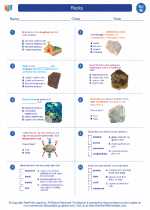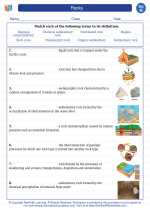Oceans
Oceans cover more than 70% of the Earth's surface and play a crucial role in regulating the planet's climate and supporting a diverse range of marine life.
Ocean Composition
Oceans are composed of saltwater, primarily containing dissolved salts such as sodium and chloride. The key components of ocean water include:
Ocean Zones
Oceans are divided into different zones based on depth and distance from the shore:
Ocean Currents
Ocean currents are continuous, directed movements of seawater generated by forces such as wind, temperature, and salinity gradients. They play a significant role in distributing heat and nutrients around the globe.
Marine Life
Oceans support a wide variety of marine life, including fish, mammals, invertebrates, and microscopic organisms. The diverse ecosystems within oceans are essential for the overall health of the planet.
Human Impact
Human activities, such as pollution, overfishing, and climate change, have a significant impact on the health of the oceans and marine life. Understanding and addressing these challenges is crucial for the preservation of our oceans.
Study Tips
To study oceans effectively, consider the following tips:
- Use visual aids such as diagrams and maps to understand ocean geography and currents.
- Learn about key marine species and their habitats to appreciate the diversity of ocean life.
- Stay updated on current environmental issues affecting the oceans and potential solutions.
- Explore hands-on activities such as visiting aquariums or conducting experiments related to ocean properties.
◂Science Worksheets and Study Guides Eighth Grade. Rocks

 Worksheet/Answer key
Worksheet/Answer key
 Worksheet/Answer key
Worksheet/Answer key
 Vocabulary/Answer key
Vocabulary/Answer key
 Vocabulary/Answer key
Vocabulary/Answer key
 Vocabulary/Answer key
Vocabulary/Answer key
